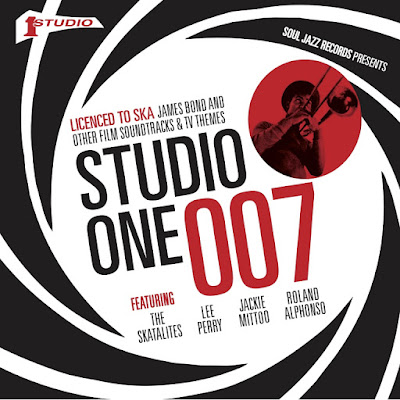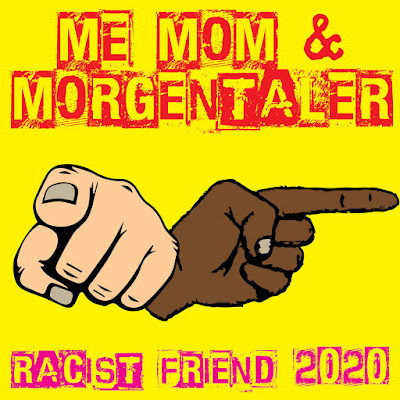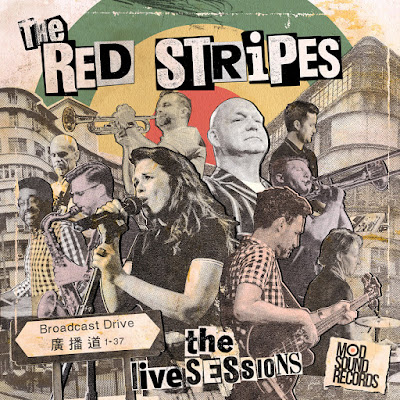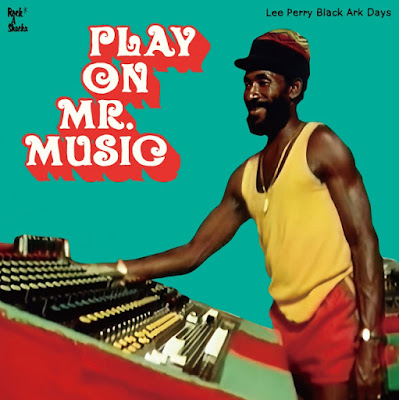 Soul Jazz Records
Soul Jazz Records5 x vinyl single box set
2020
(Review by Steve Shafer)
While it was common practice for the original 1960s instrumental ska bands to cover popular songs and movie themes of the day, the James Bond connection to the Jamaican music scene was firmly cemented in 1962 during the filming of the first Bond film Dr. No, which was set on the island (as were Live and Let Die and The Man With the Golden Gun). Of course, Bond author Ian Fleming lived in Jamaica on an estate called Goldeneye, and he was the one who recommended future Island Records honcho Chris Blackwell to Dr. No's producers as a location scout and production assistant (the Blackwells were neighbors of Fleming, and unbeknownst to her son, Blanche Blackwell had a long-term affair with Fleming). Chris Blackwell, in turn, introduced composer Monty Norman, who had been hired to write the Dr. No soundtrack, to the "uptown" and more respectable Byron Lee and the Dragonaires (both guitarist Ernest Ranglin and trombonist Carlos Malcolm were in his band), who recorded the calypso-ish music on the movie soundtrack, and appeared in the film performing "Jump Up" (Blackwell apparently can be spied dancing in this scene, too).
In addition to the fact that the first Bond movie was shot in Jamaica, the stylish, womanizing, and legally transgressive Bond character resonated with many Jamaicans, as he was akin to the rebellious rude boy persona associated with toughs in the sound system scene (and street-level gangsters)--and celebrated/decried in the ska music of the early to mid-1960's (see Stranger Cole's "Rough and Tough," The Wailers' "Simmer Down," "Rude Boy," and "Jailhouse," Alton Ellis' "Dance Crasher" and "Cry Tough," Baba Brooks' "Gun Fever," Desmond Dekker "Rudy's Got Soul" and "007 (Shanty Town)," Derrick Morgan's "Tougher Than Tough" and "Cool Off Rudies," The Slickers' "Johnny Too Bad," The Valentines' "Blam Blam Fever," Prince Buster's "Judge Dread," Lee Perry's "Set Them Free," Dandy Livingstone's "Rudy, A Message to You," and dozens more).
In terms of risk management, since the better songs from movie and TV soundtracks already were well-known and liked, it made financial sense for budget-conscious record producers like Studio One's Coxsone Dodd to try to capitalize on their popularity by recording and releasing cover versions given a ska spin by some of the JA's best musicians (and they didn't have to solely rely on their roster of composers coming up with new material to record that may or may not sell). While most popular music is open to individual interpretation--we are free to associate whatever emotions and personal experiences we want to them (despite the songwriters' intentions)--these highly evocative and dramatic film and TV theme songs are specifically crafted to musically brand the traits of their particular fictional leads and frame their back stories. (To put it crassly, the theme songs are more sophisticated, bigger budget jingles to help sell movies instead of breakfast cereals.) Whenever I hear the opening guitar riff of the Bond theme, I'm thinking about how cool and sadistic Sean Connery is in that role, not what I was doing or how I feeling when I first heard it (and I don't even remember when or where I first heard it)--though listening to it always makes me feel cool and deadly like Bond. Within a matter of a few minutes, these theme songs aim to elicit specific moods and memories from listeners, calibrate their expectations for what this show or movie will deliver, and set the stage for all that is to transpire once the action starts. So, in this manner, popular theme songs often create uniform reactions (in terms of emotions and memories) across large groups of people that can be used and borrowed by others via cover versions.
For Record Store Day 2020, Soul Jazz Records collected many these now hard to find and pricey James Bond-related Studio One recordings (plus three others--hence the ridiculously long title of this release) in the superb and instantly collectable 007 Licensed to Ska: James Bond and Other Film Soundtracks and TV Themes 7" singles box set. Almost all of them feature Studio One's ace house band The Soul Brothers--Jackie Mittoo, Roland Alphonso, Johnny Moore and Lloyd Brevitt--who formed right after the dissolution of The Skatalites in the summer of 1965, and were joined by a rotating group of top JA musicians, including Bobby Ellis, Bryan Atkinson, Bunny Williams, Dennis "Ska" Campbell, Harold McKenzie, Harry Haughton, Jah Jerry Haynes, Joe Isaacs, Karl Bryan, Lester Sterling, Lloyd Knibbs, Lynn Taitt, Sam Wells, Vin Gordon, and Wallin Cameron. Dodd, naturally, was at the controls, producing all of these sessions. Notably none of these tracks are straight covers. They've been interpreted through a Jamaican ska-jazz lens by gifted musicians, who have utilized the widespread recognition and appeal of these movie and TV show themes, but transformed them into something new that they own--transmuting commerce back into art.
007 Licensed to Ska kicks off with The Soul Brothers' "James Bond Girl" (1966), a great minor-key Roland Alphonso original that captures the frisson in the sexual allure and possible menace the woman in this role presents to 007 during each mission, and nicely incorporates the John Barry/Monty Norman Bond theme in its intro and outro. It's paired with Roland Alphonso and The Studio One Orchestra's excellent ska-jazz take on "From Russia With Love" (1965) by John Barry and Lionel Bart (Alphonso has a sweet solo here).
Record two features a beautiful Jamaican jazz read of the instrumental version of John Barry's "Thunderball" by The Soul Brothers (the Keyboard King solos), which is backed with Mittoo's awesome 1969 keyboard-heavy reggae funk cover of Dominic Frontiere's "Hang Em High"--from the spaghetti Western-like revenge film of the same name (the track is clearly an homage to Ennio Morricone)--which appeared on Mittoo's Keep on Dancing LP.
"Mr Kiss Kiss Bang Bang" (1967)--Bond summed up in a nutshell--by John Barry and Leslie Bricuss is another instrumental cut from the Thunderball soundtrack (though there is a version with lyrics sung by Shirley Bassey). The Soul Brothers drain the schmaltz to reveal the cracking melodies hidden within that made for a perfect Skatalites-like ska track. The dark and wonderful "007" by The Soul Brothers is credited to Alphonso/Dodd/Mittoo, though some of its horn melodies may share some notes with Barry's "007," also from the Thunderball OST, but the song thoroughly sounds like it's theirs.
Lee Perry and The Wailers' terrific "Pussy Galore," a 1965 Dodd/Perry original, is a fairly conventional ska song with Perry's weirdness lurking beneath the surface, just itching to be released. Scratch warns the listener, "If you are rich and wanna get poor/Just fall in love with Pussy Galore" (the character, apparently based on Blanche Blackwell (!), appears in Goldfinger and is played by Honor Blackman, who was in the TV show The Avengers as Dr. Cathy Gale before Diana Rigg came on as Emma Peel). The Soul Brothers' jaunty "Mr. Flint" (1966) borrows Jerry Goldsmith's theme for the James Bond spoof Our Man Flint.
I never before realized that The Skatalites' incredible 1965 cut "Ball of Fire" (AKA "Echo Four Two") was composed by Laurie Johnson for the short-lived 1961 British police procedural Echo Four Two (Johnson famously wrote the theme to the TV show The Avengers). To this day, it stands as one of The Skatalites' best recorded performances. The set is rounded out with a rare lounge-y interpretation of Barry's "007" instrumental by The Soul Brothers retitled "James Bond Danger Man."
Hopefully, Soul Jazz Records will also release this collection as an LP someday, as something this good should be available to the ska massive, not just those lucky enough to come across this singles box set on Record Store Day. There's the potential for good commerce in making this art available to the masses.
+ + + +





















